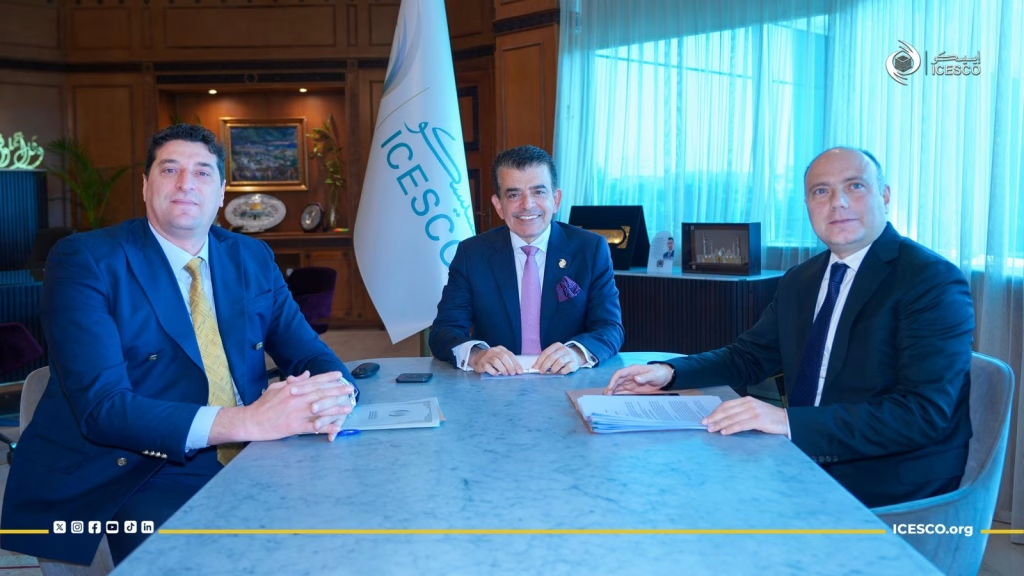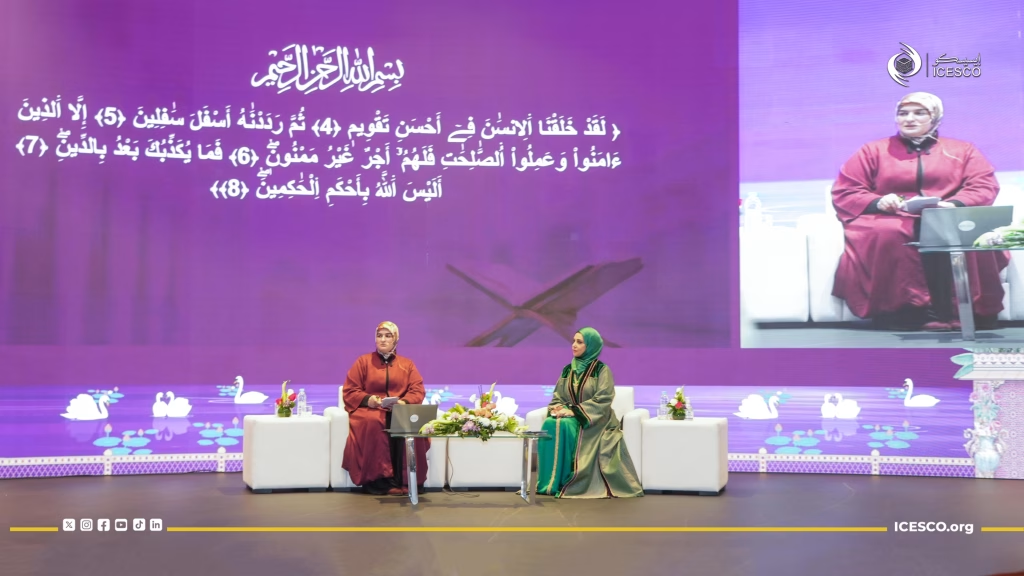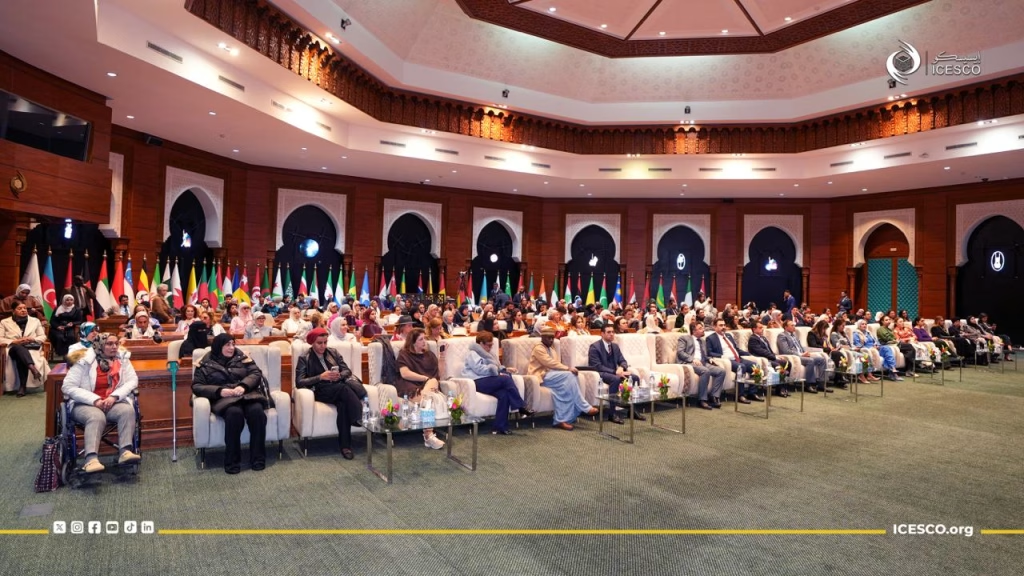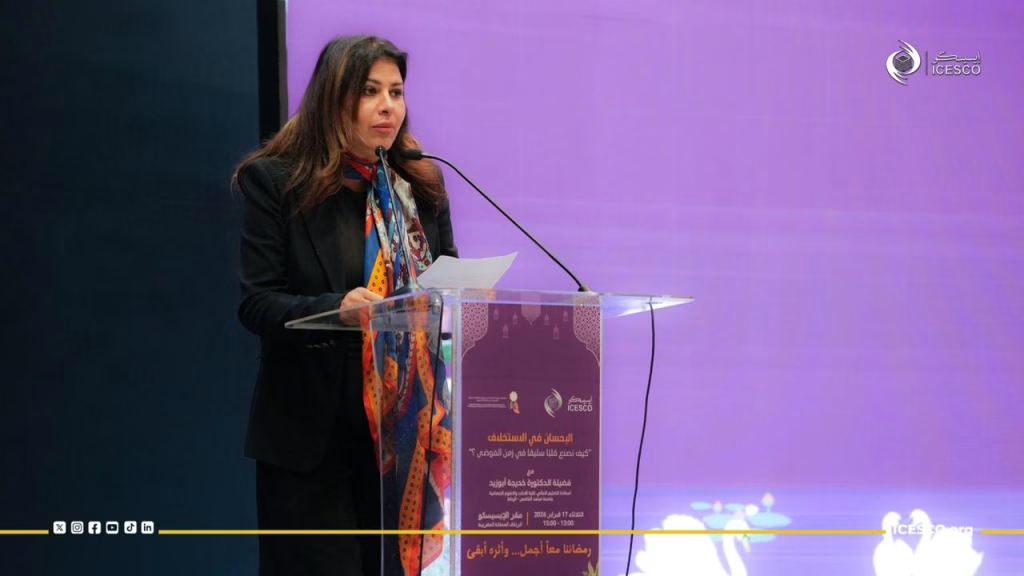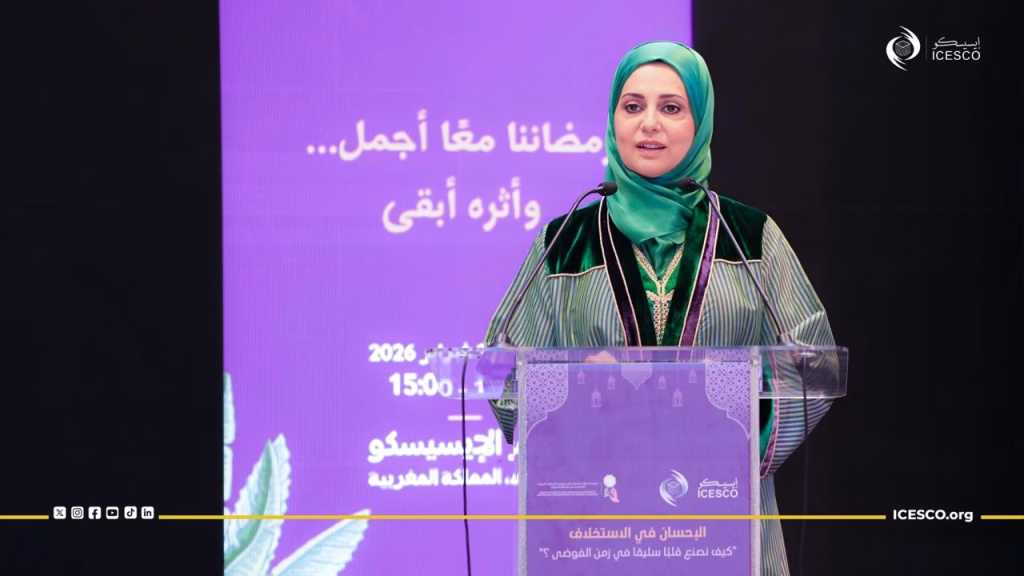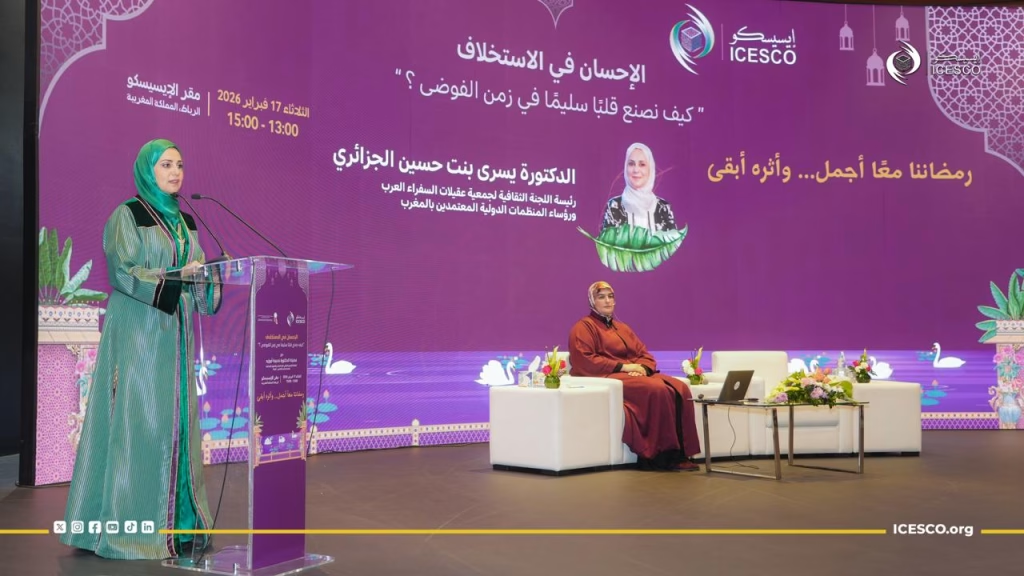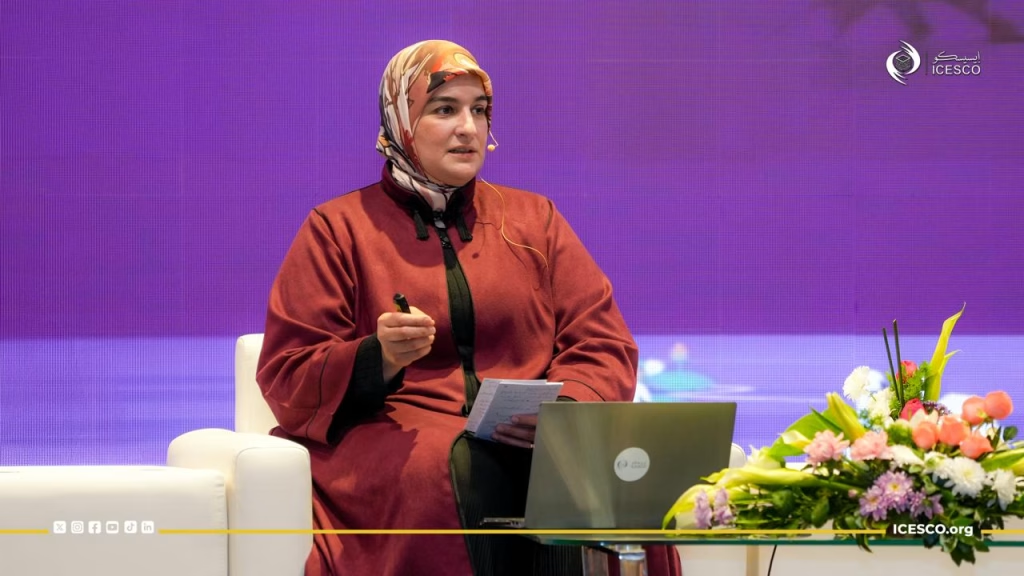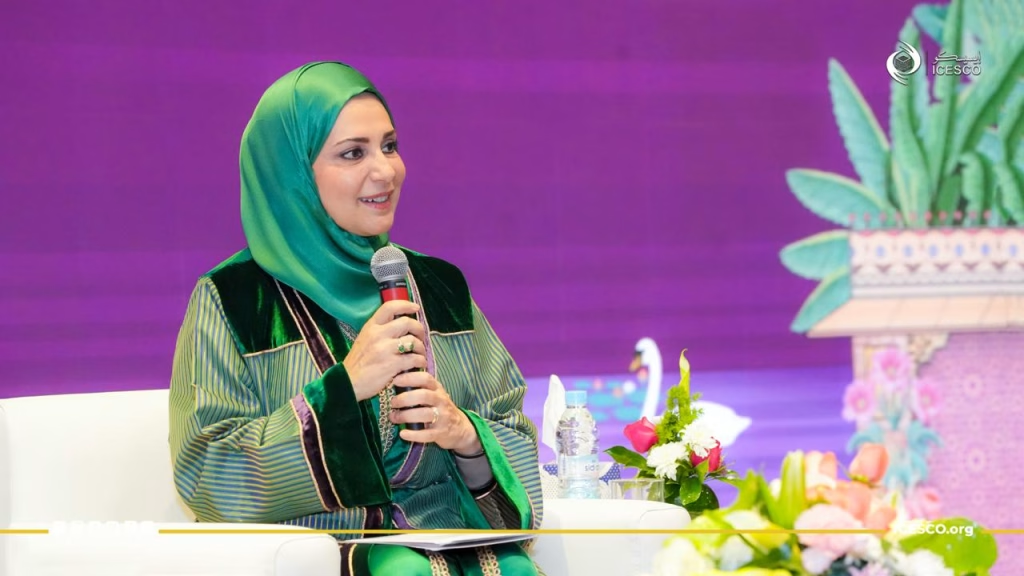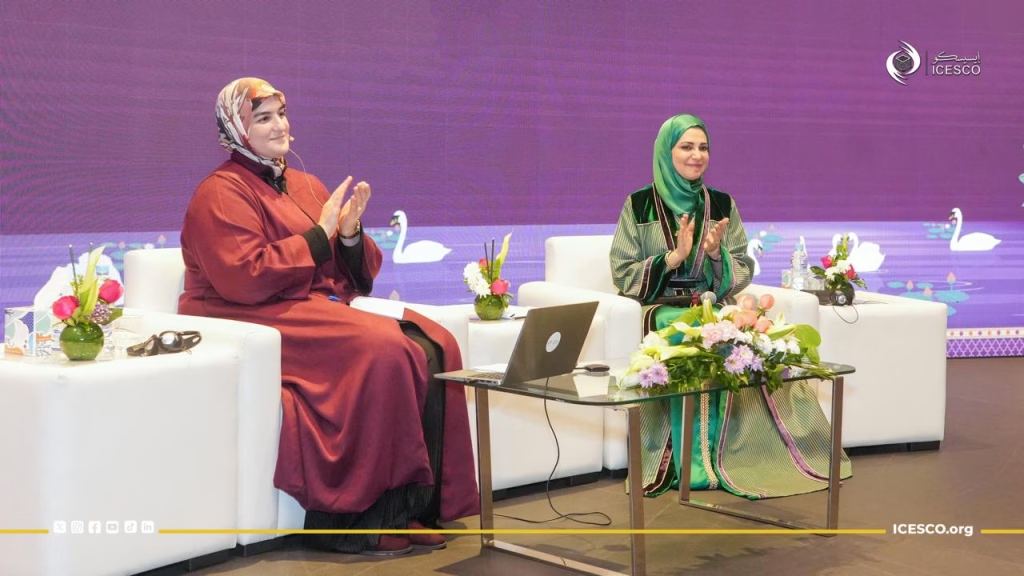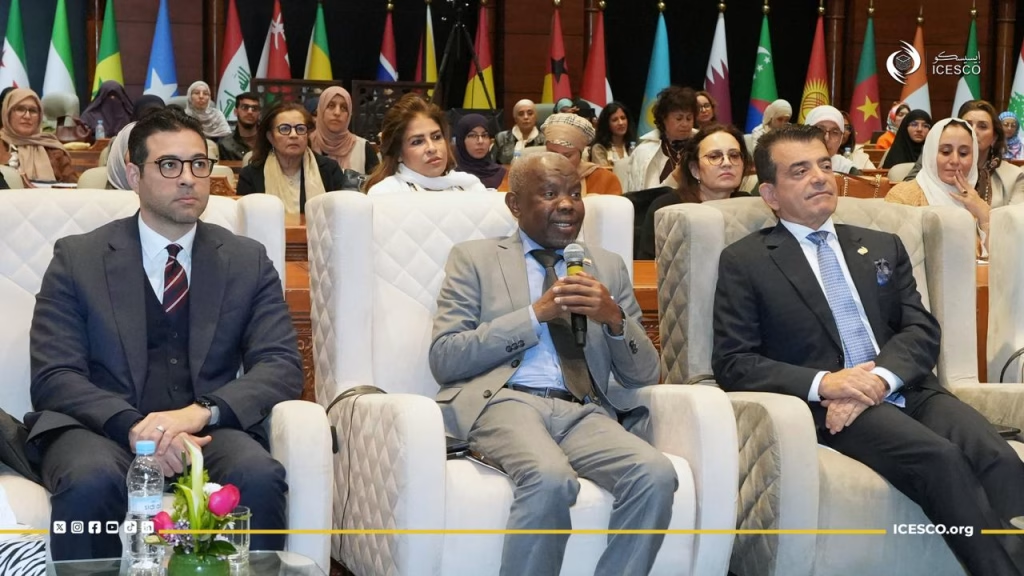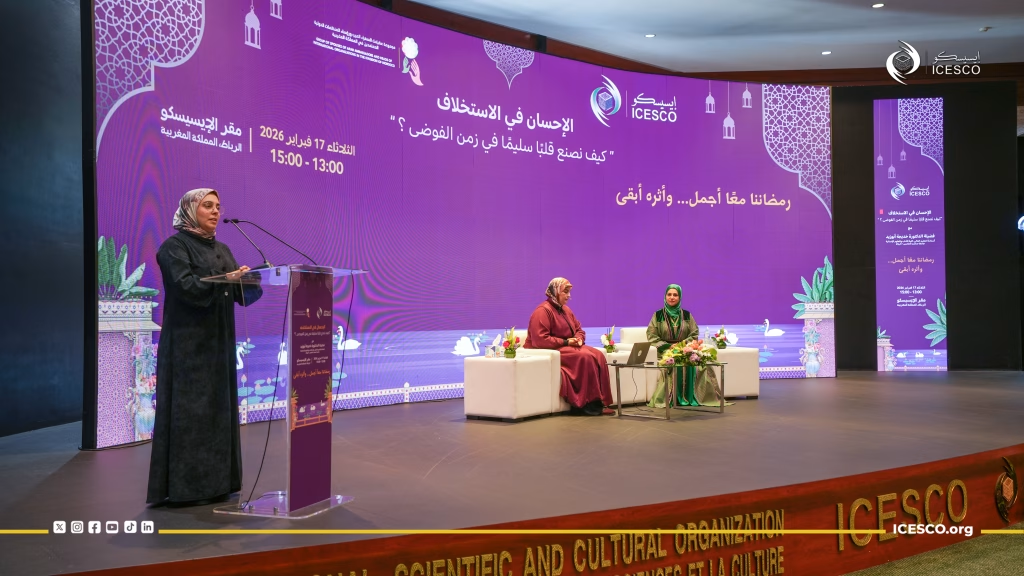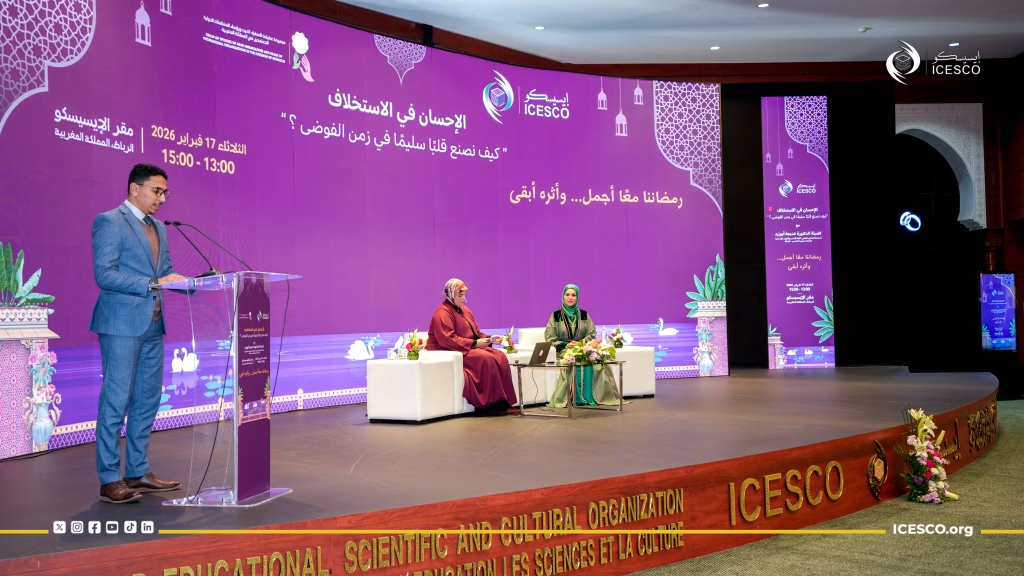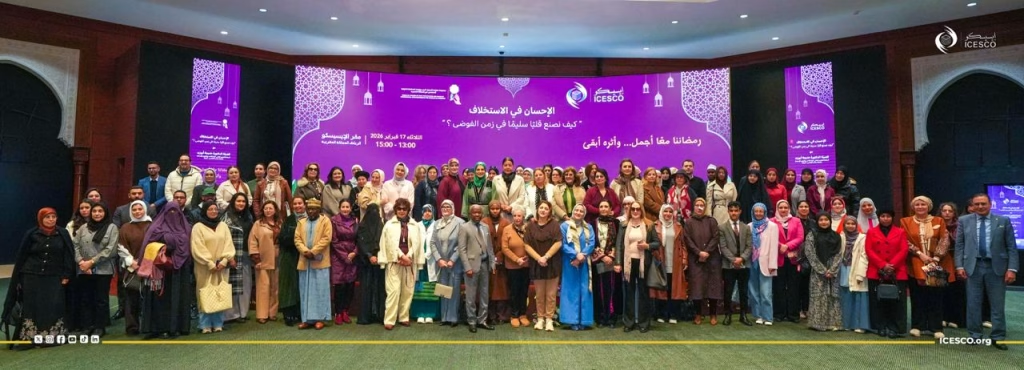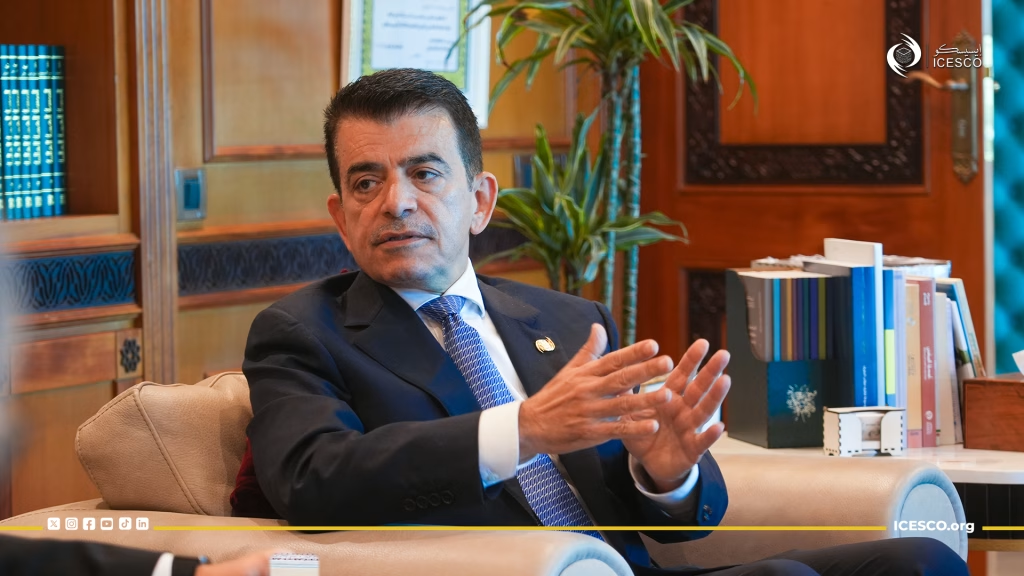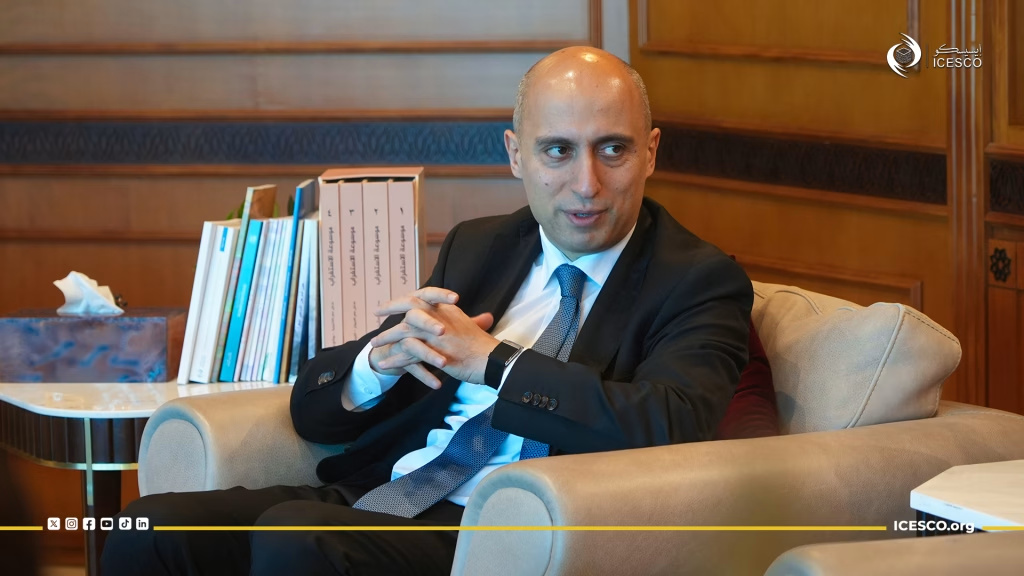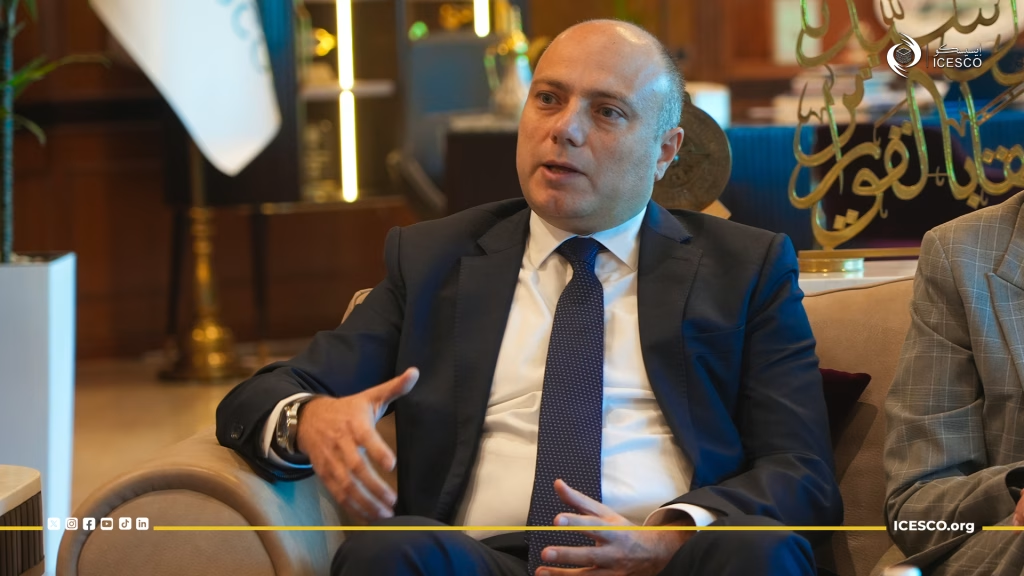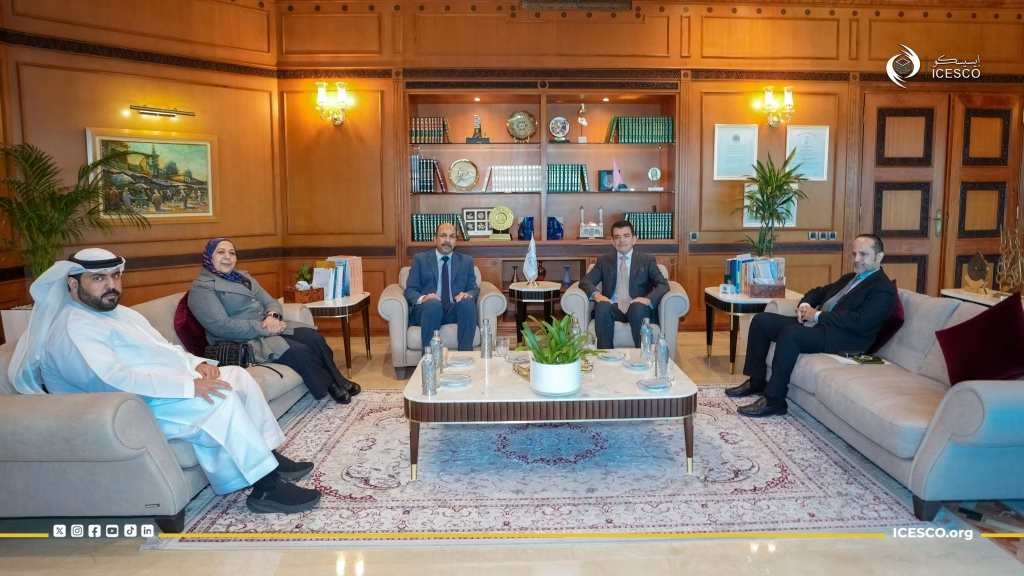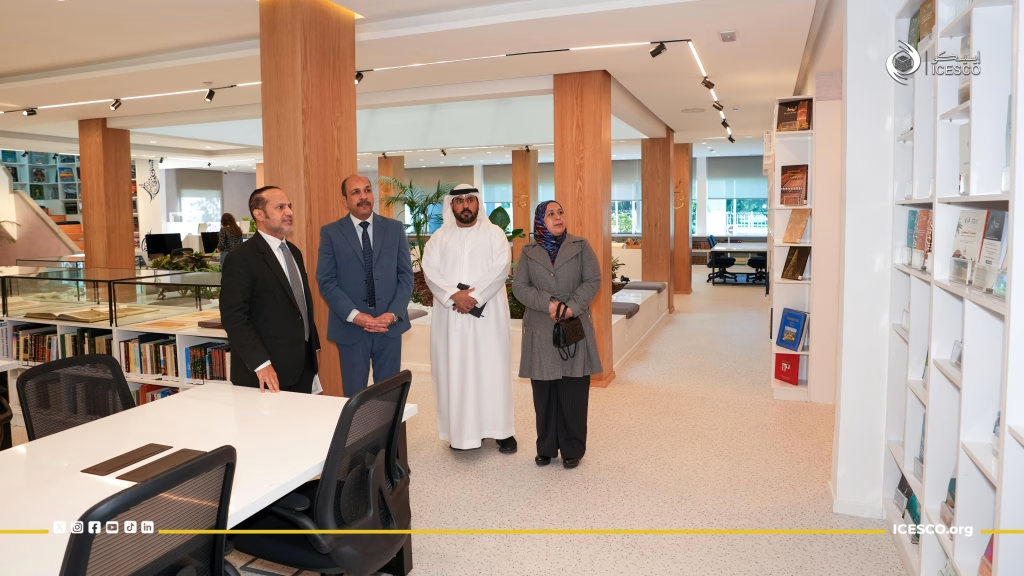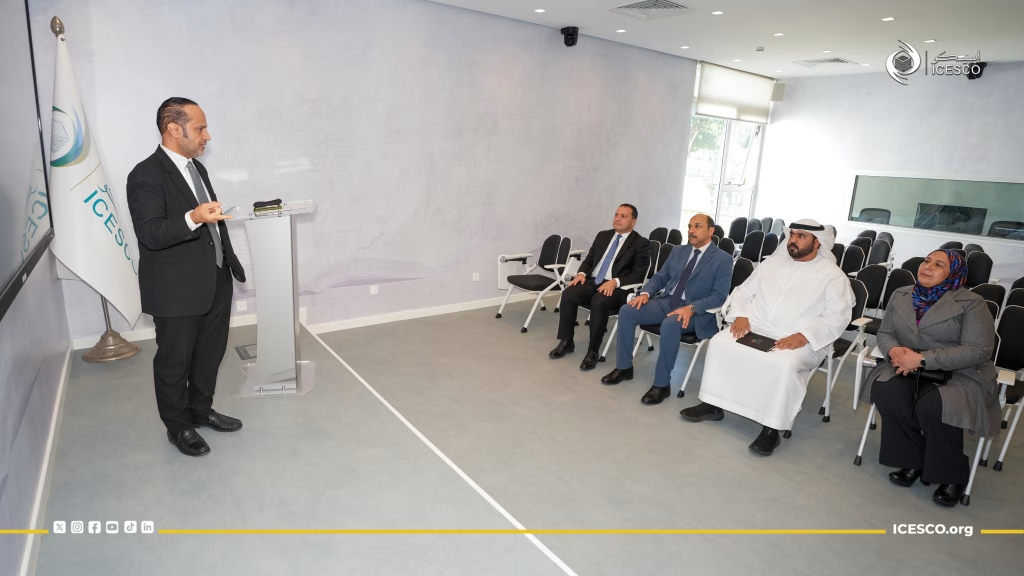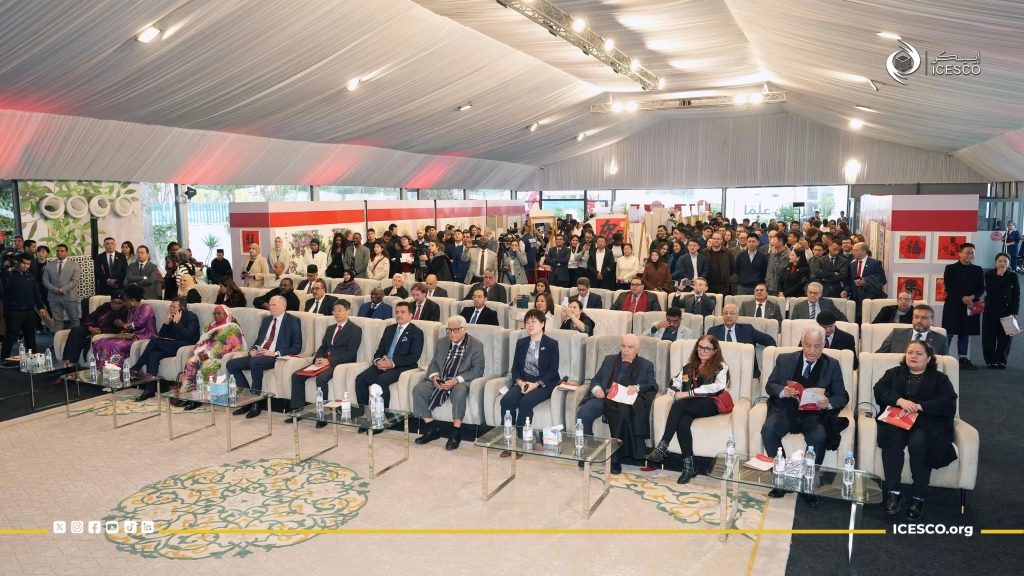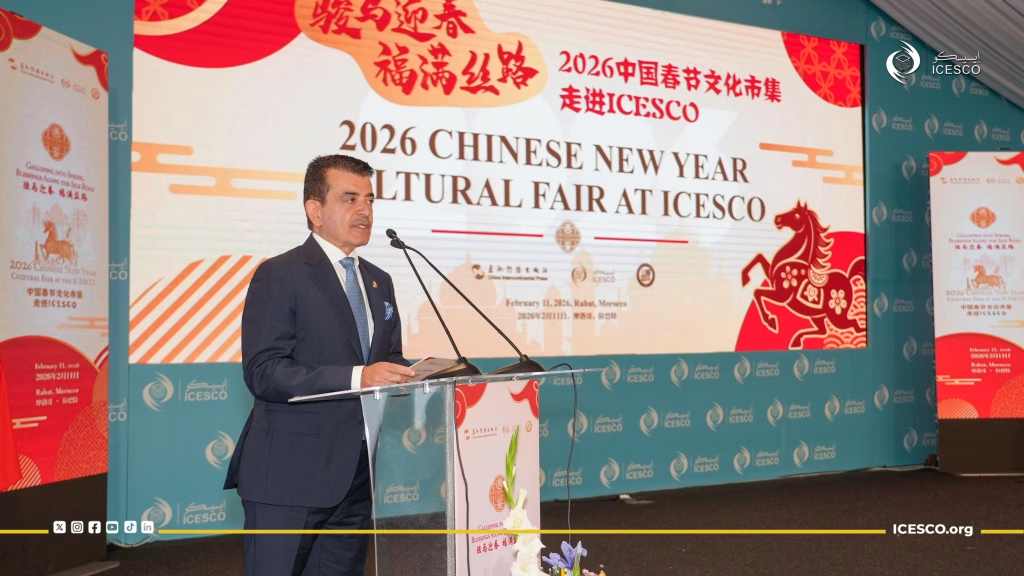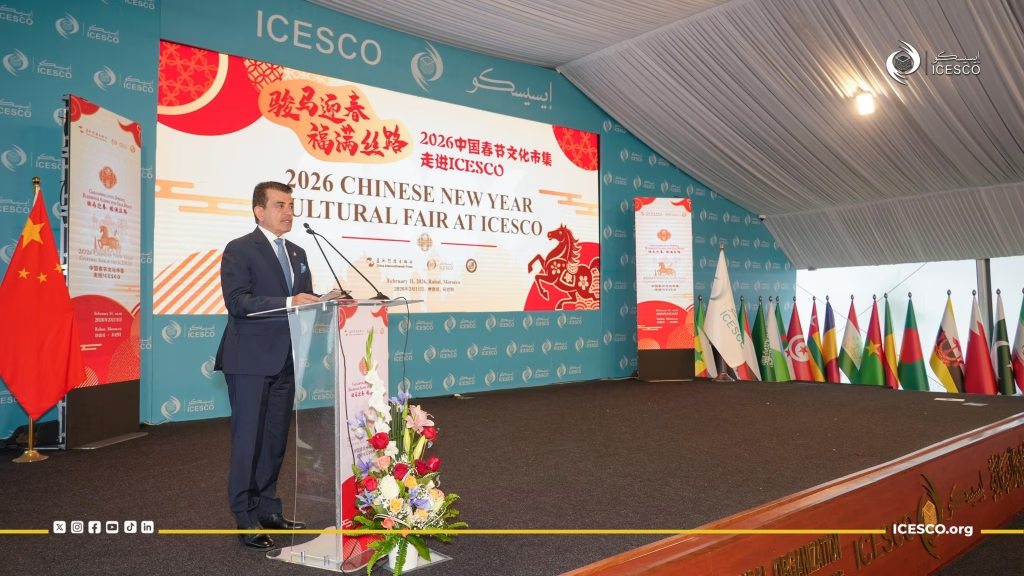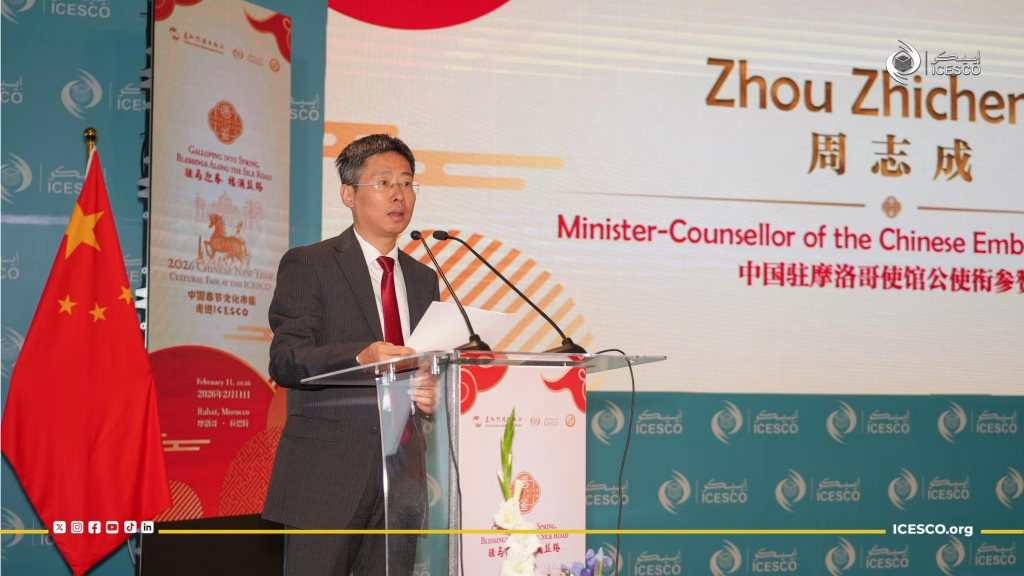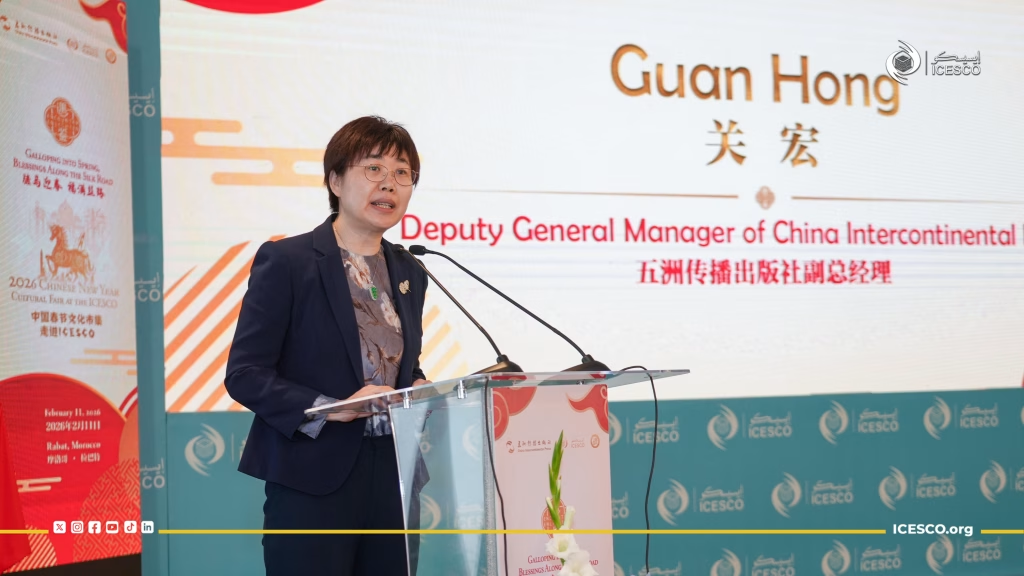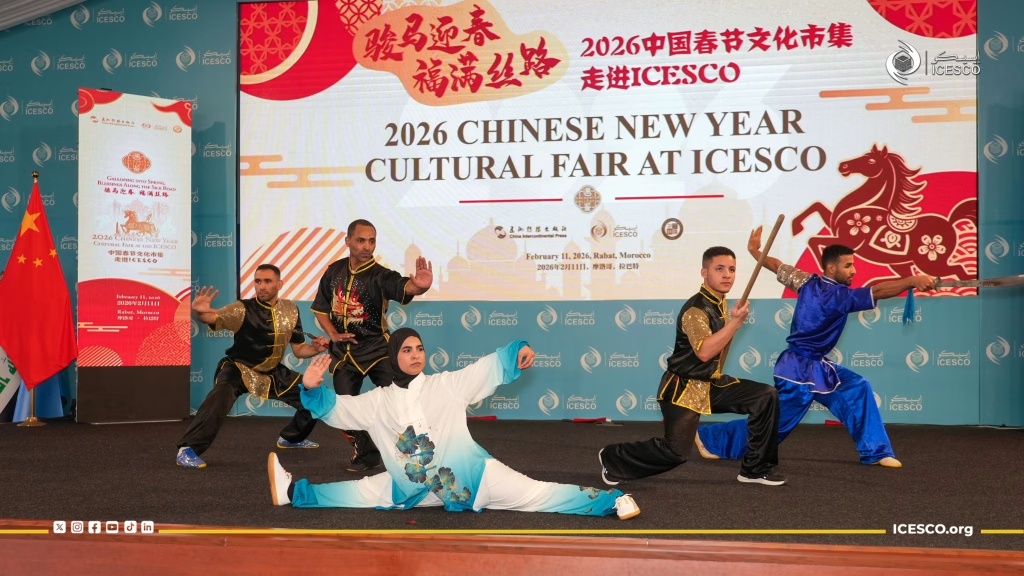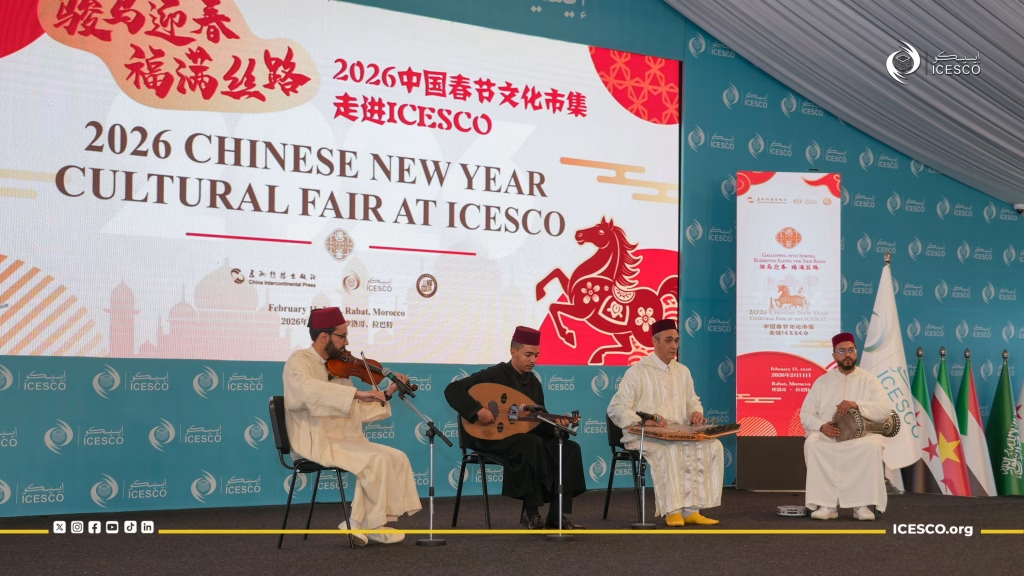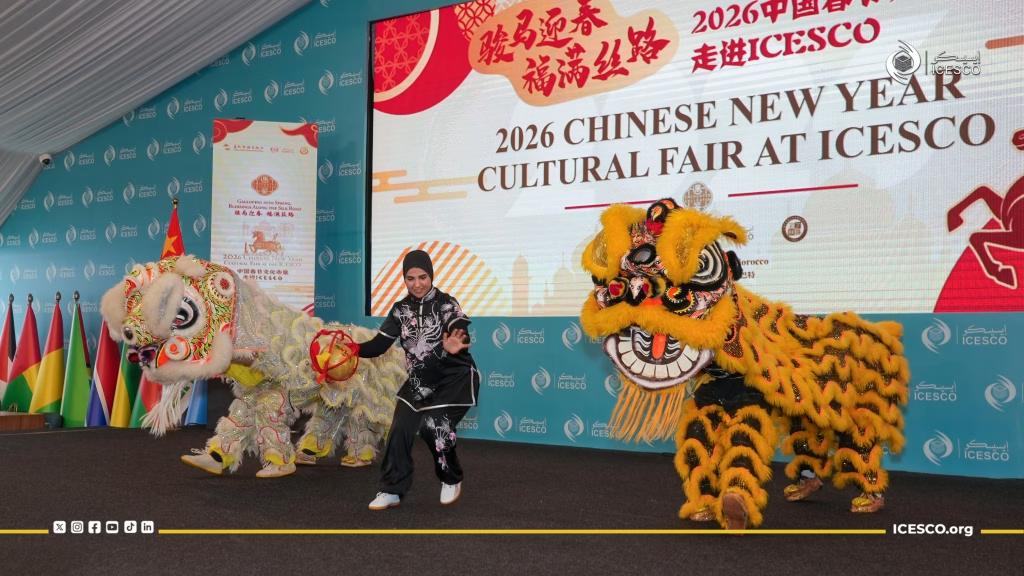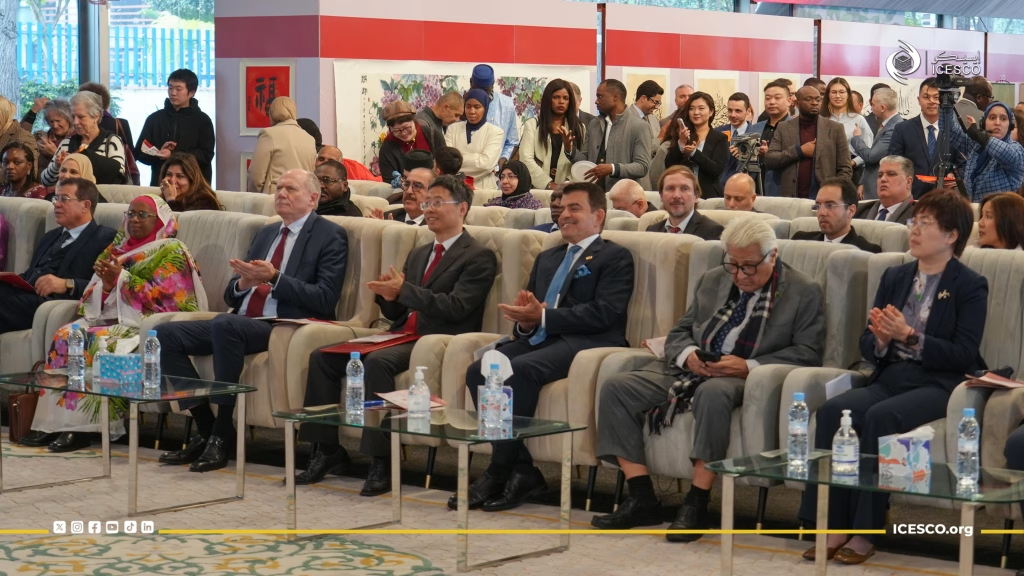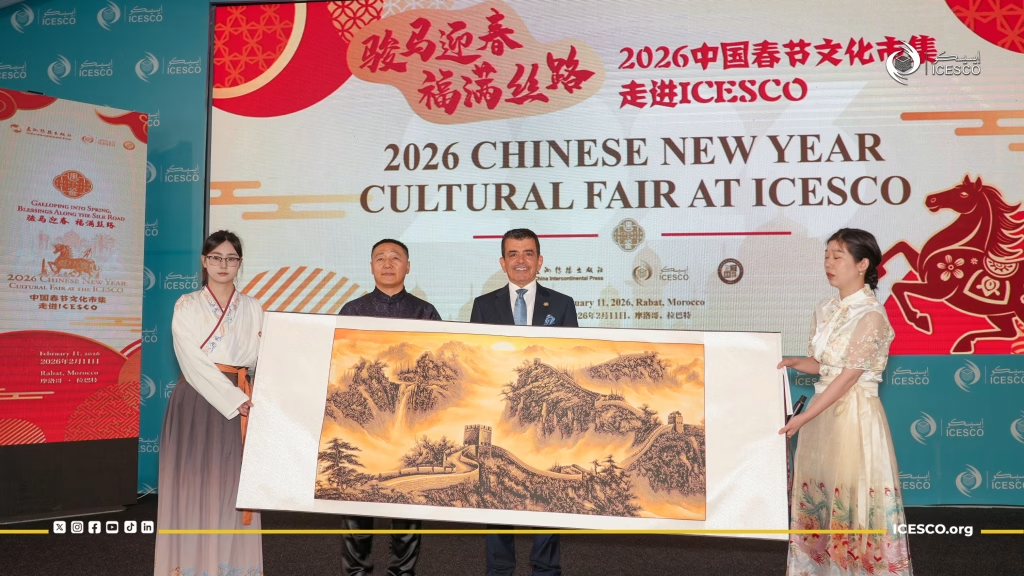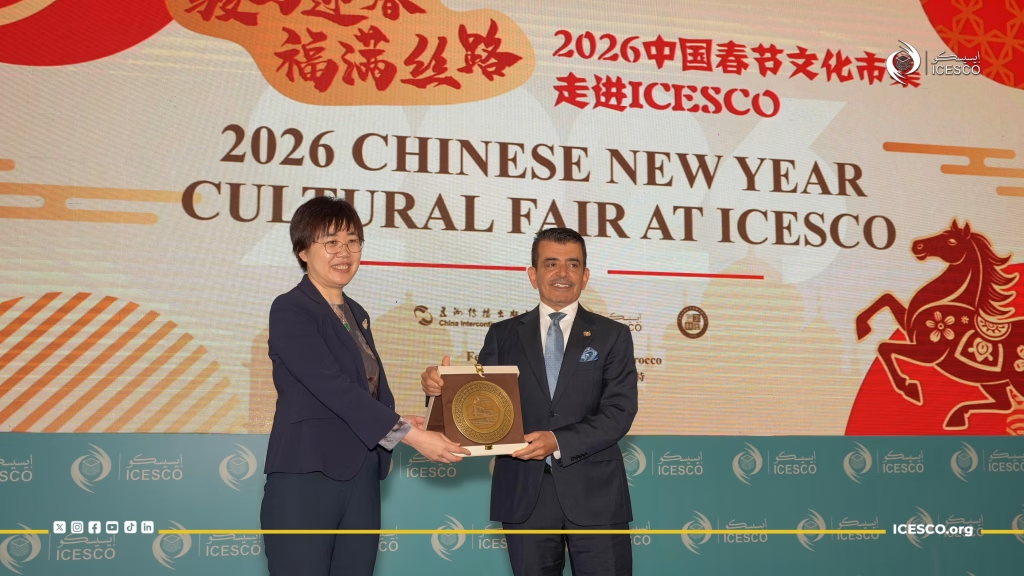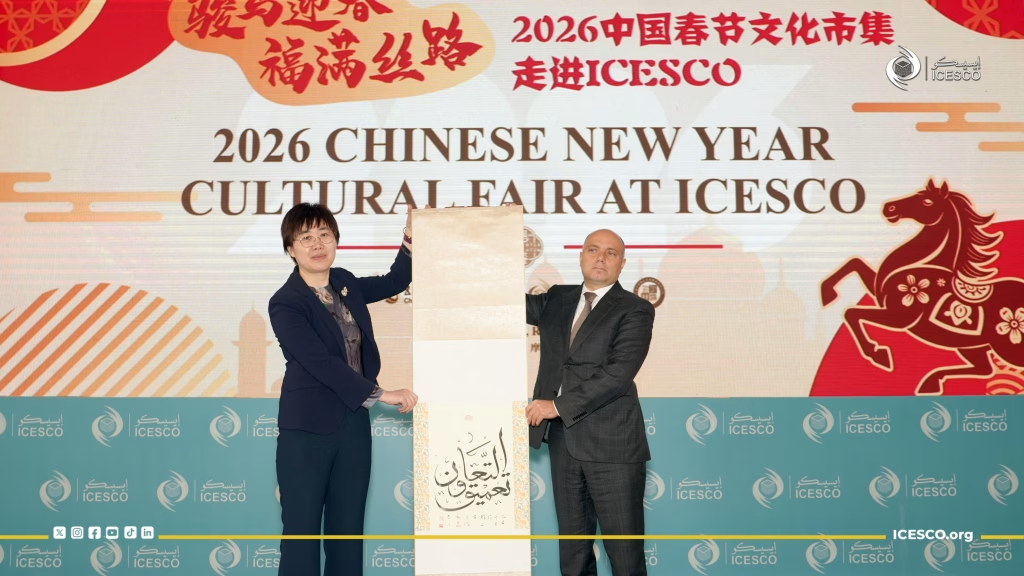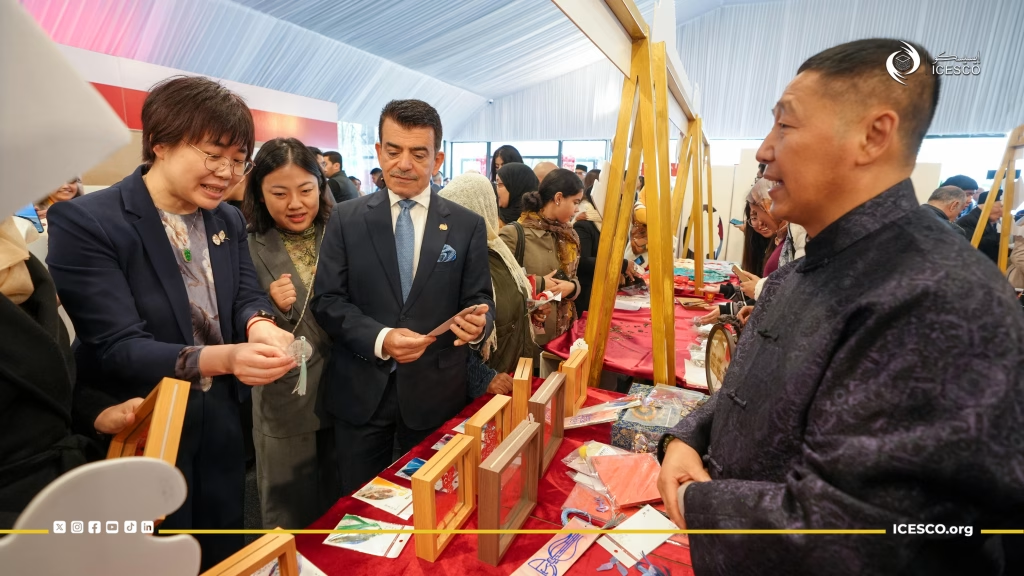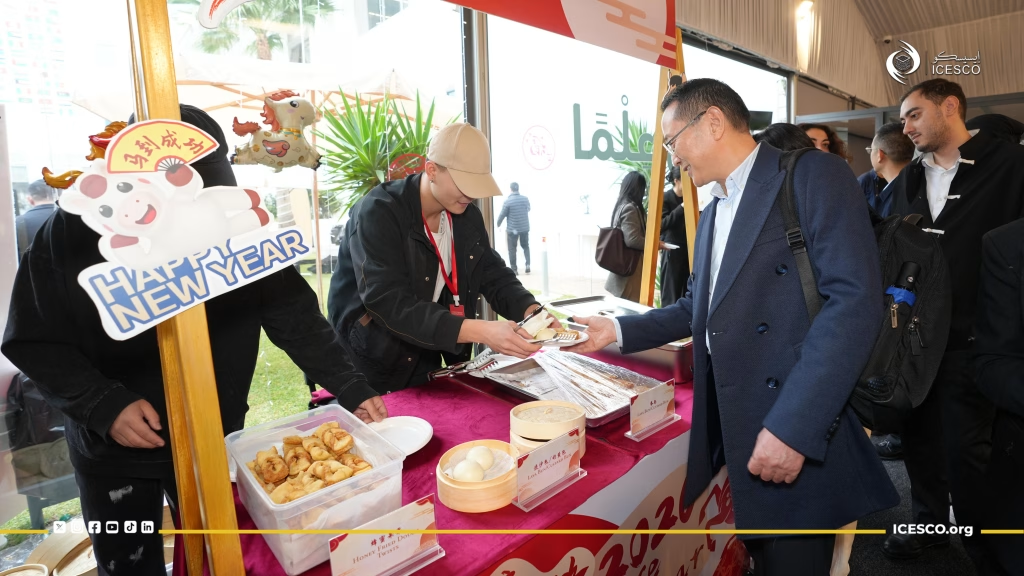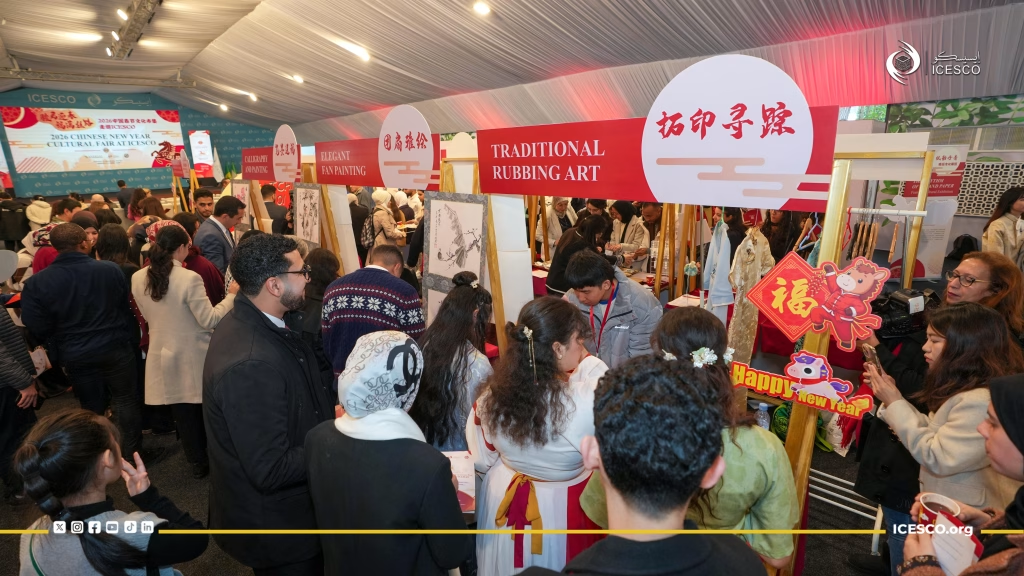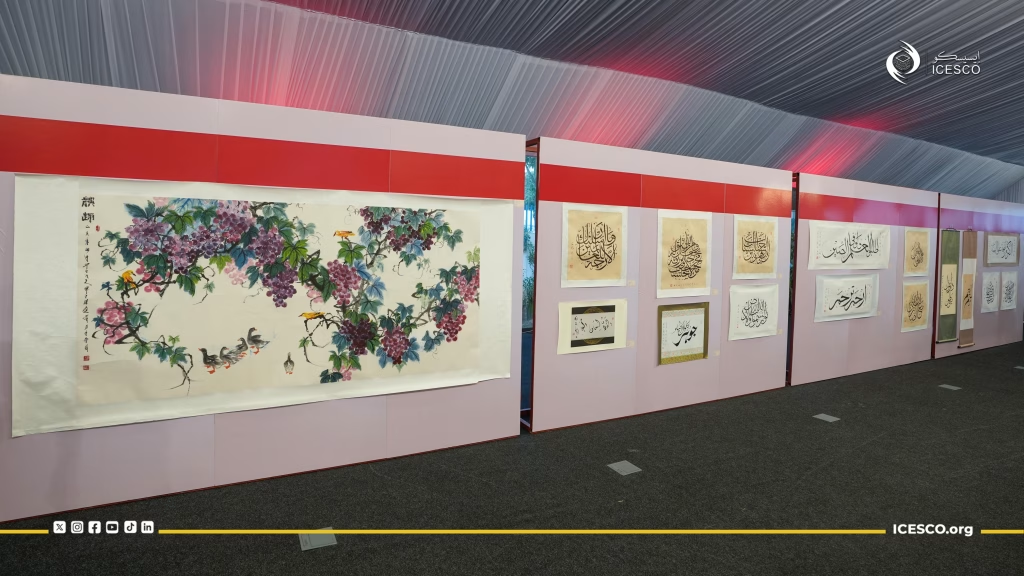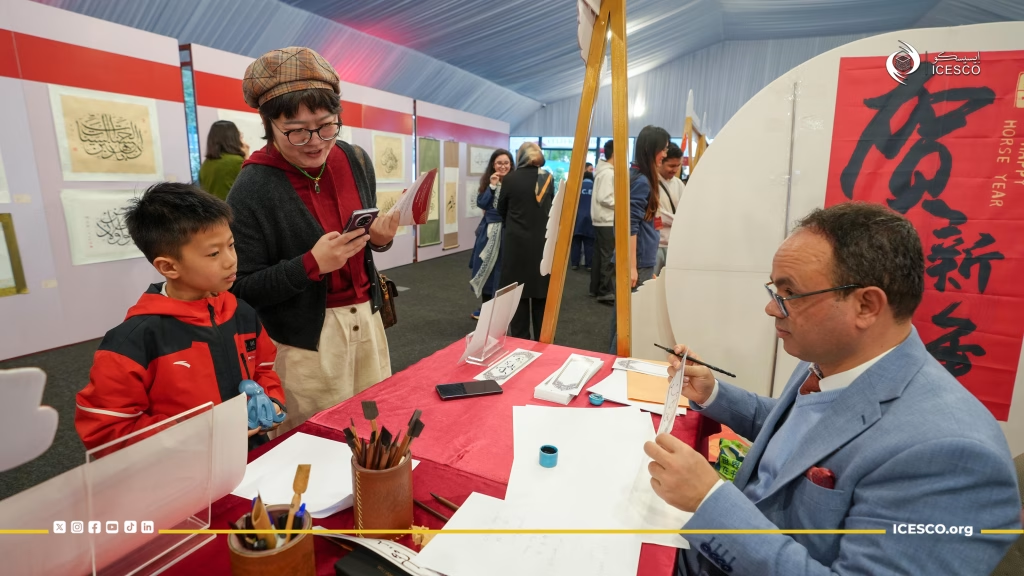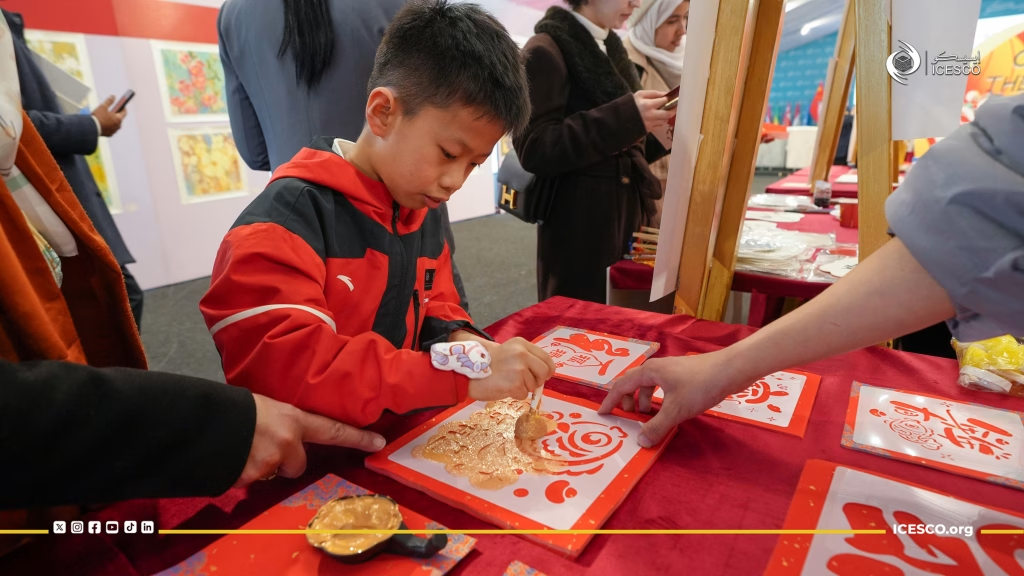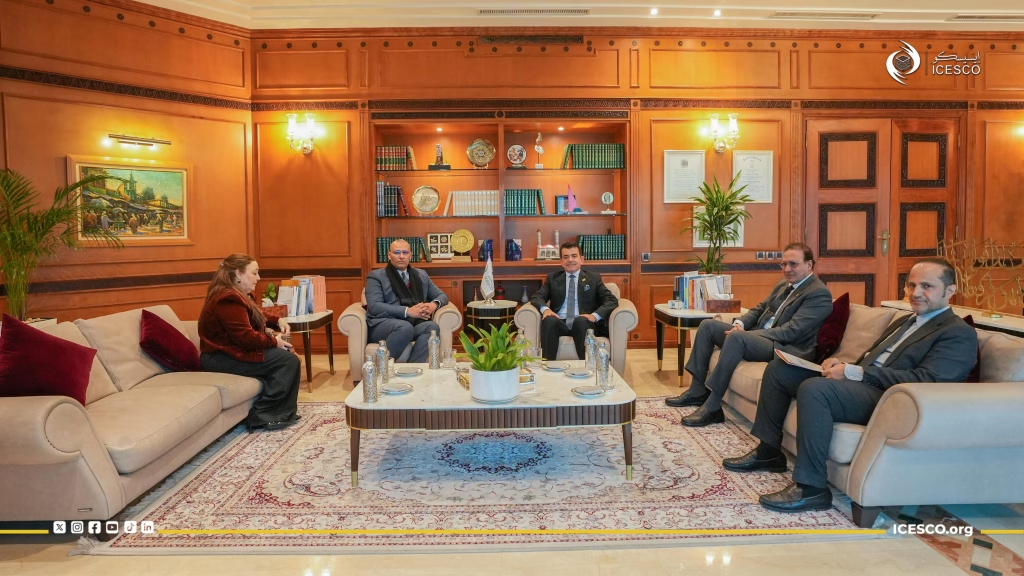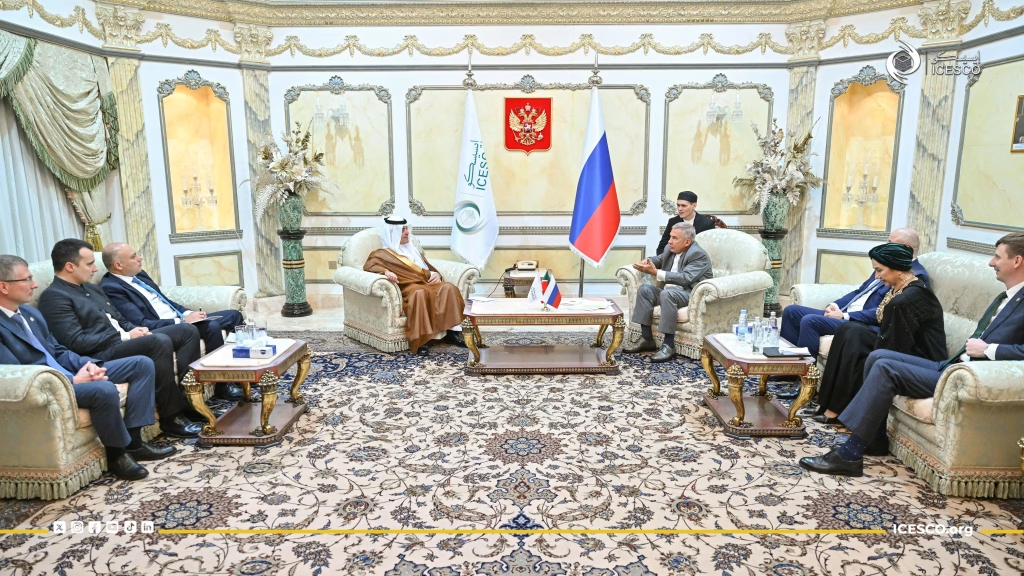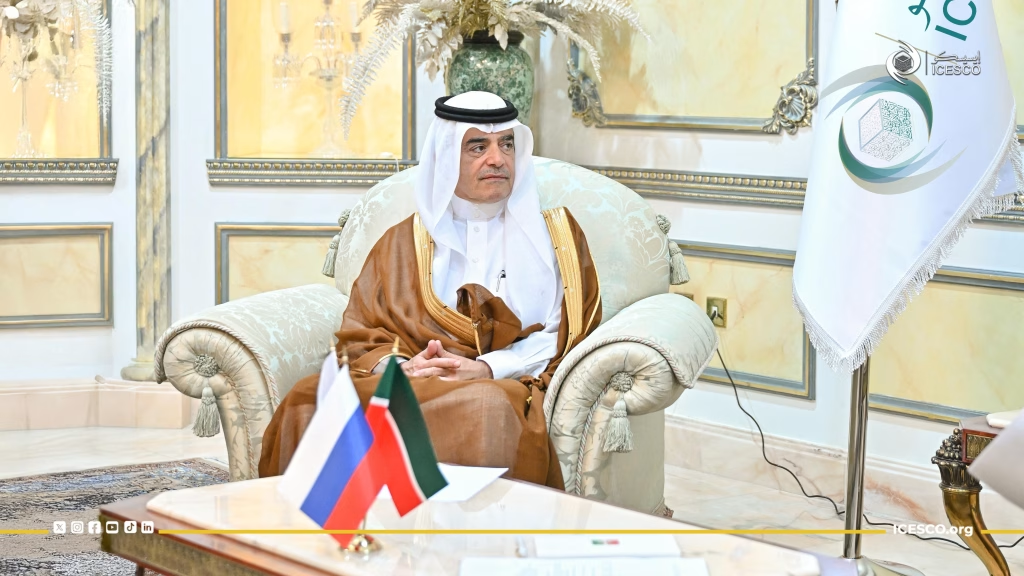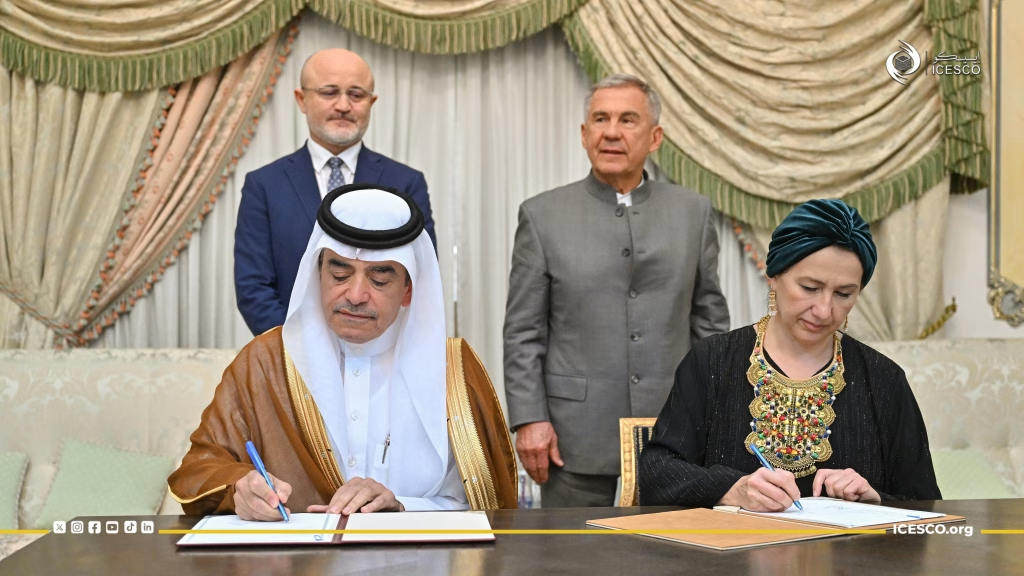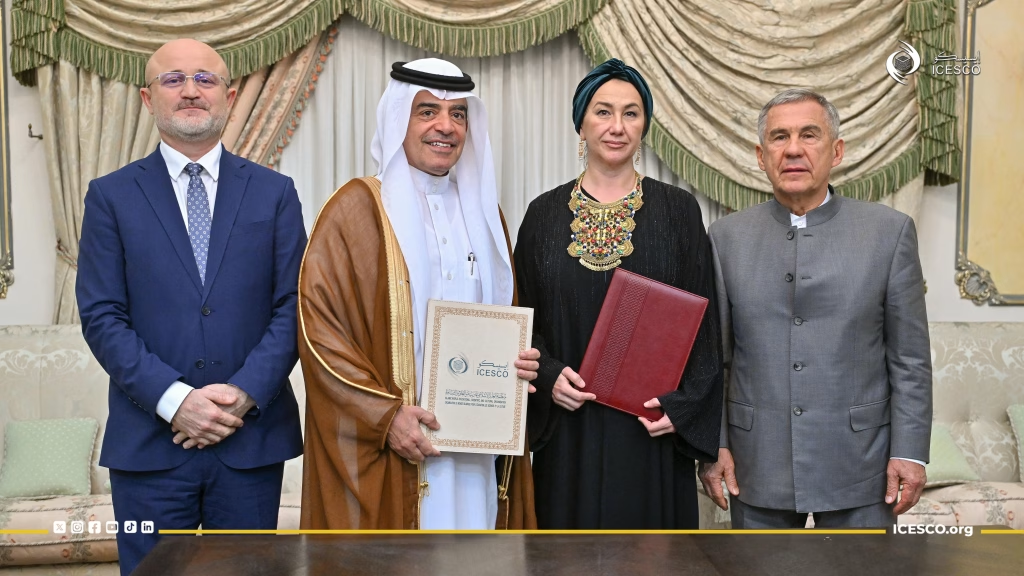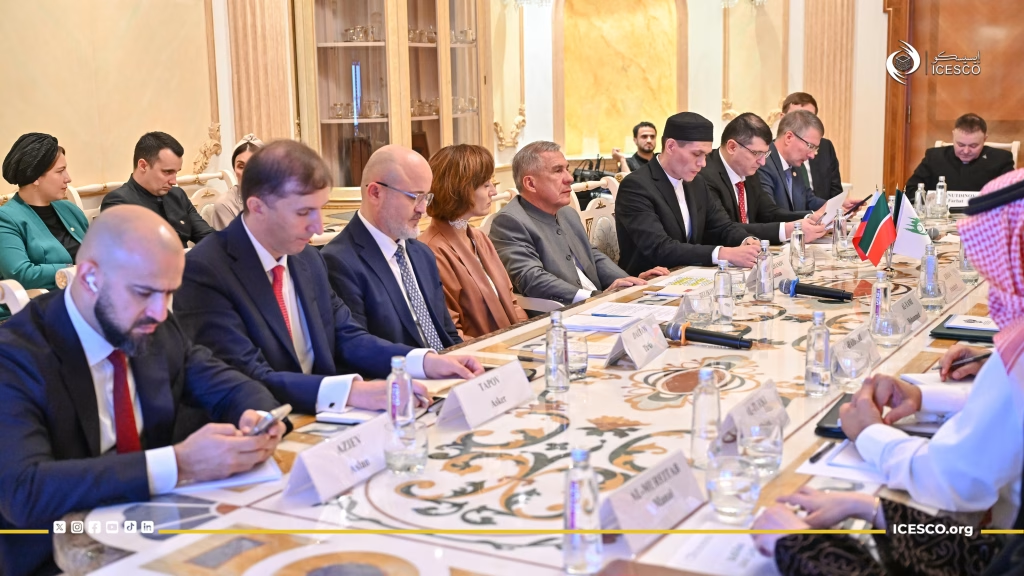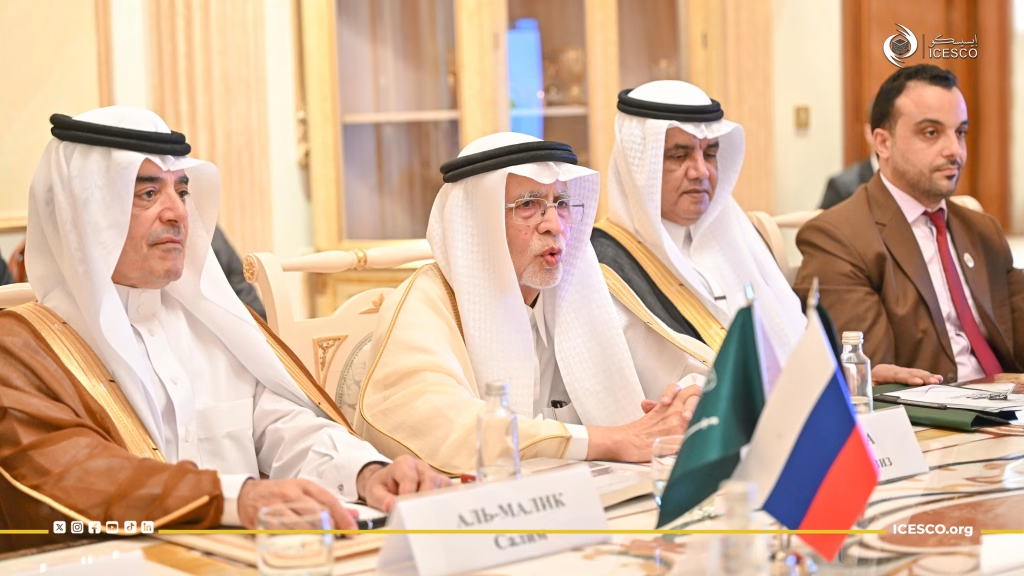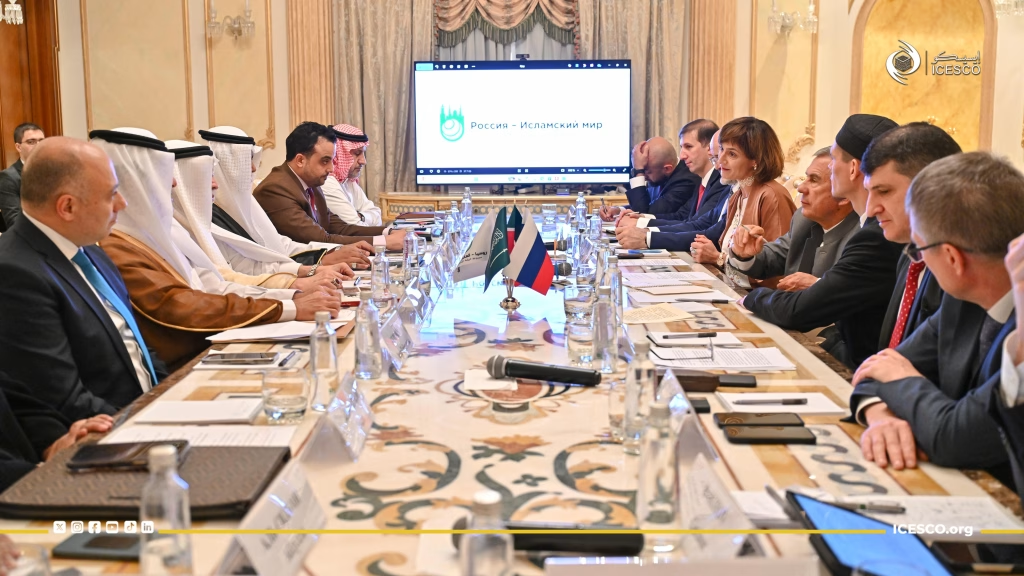Dr. Salim AlMalik, Director-General (DG) of the Islamic World Educational, Scientific and Cultural Organization (ICESCO), held a meeting with Mr. Hammam bin Juraid, Executive Director of the Arab Gulf Program for Development (AGFUND), to discuss a joint action plan, under the MoU signed between the two sides, for the implementation of programs and projects aimed at supporting the educational process in Sudan, Syria, and a number of other countries in the Islamic world.
During the meeting, held on Wednesday, February 25, 2026, via videoconference, Dr. AlMalik stressed the need to develop impactful activities and programs that can improve the living conditions of individuals and communities, as well as projects that promote the advancement of the educational system in Sudan and Syria, and in other countries most in need, by providing educational facilities and school supplies for students and teachers.
For his part, Mr. Bin Juraid expressed AGFUND’s aspiration to develop joint projects with ICESCO in the field of education in both Sudan and Syria and to implement them in several phases in the near future as part of the efforts deployed by both sides to promote sustainable development, especially in areas suffering from instability.
The two sides agreed to form a joint team of experts and specialists to identify the programs and projects to be worked in the near future.
The meeting was attended by Mr. Anar Karimov, Head of ICESCO’s Partnerships and International Cooperation Sector and Mr. Mohamed Hedi Shili, Director of Legal Affairs and International Standards at the Organization, and on behalf of AGFUND, Mr. Muhammad Alsalim Director of Projects Department.
